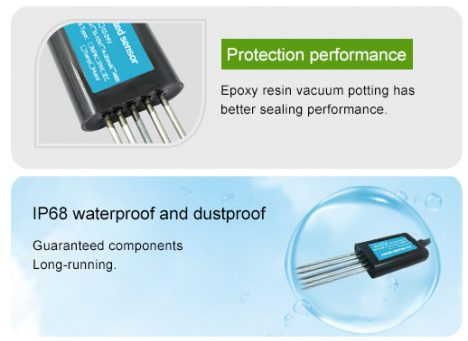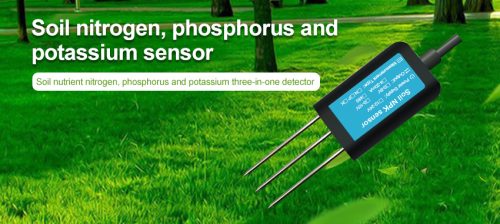Soil NPK sensors Introduction
Soil NPK sensors represent a critical advancement in modern agriculture, offering the capability to assess the levels of essential nutrients—nitrogen, phosphorus, potassium—in soil with precision and efficiency. These sensors play a pivotal role in enabling farmers and agronomists to make data-driven decisions regarding fertilizer application, crop nutrition, and soil health management. This essay explores the significance of soil NPK sensors in the context of precision agriculture, sustainable crop management, and the broader implications for optimizing resource use and environmental stewardship.
Understanding Soil NPK

Nitrogen, phosphorus, and potassium—commonly referred to as NPK—are fundamental nutrients essential for plant growth, development, and overall productivity. The availability of these nutrients in the soil directly influences crop yield, quality, and resilience to environmental stressors. Soil NPK sensors are designed to measure the concentrations of these nutrients in the soil, providing valuable insights into the nutritional status of the land and guiding the application of fertilizers to optimize crop performance while minimizing environmental impact.
Importance in Precision
Agriculture In the context of precision agriculture, soil NPK sensors offer substantial benefits for optimizing fertilizer use and enhancing crop nutrient management. By accurately assessing the levels of nitrogen, phosphorus, and potassium in the soil, these sensors enable farmers to tailor fertilizer applications to the specific needs of their crops, thereby reducing the risk of over-fertilization and nutrient runoff. This precision approach not only contributes to cost savings for farmers but also mitigates the environmental impact associated with excess fertilizer application, such as water pollution and soil degradation. Furthermore, the data obtained from soil NPK sensors can be integrated with precision farming technologies.
Sustainable Crop Management

Soil NPK sensors play a crucial role in promoting sustainable crop management practices by facilitating informed decisions regarding soil fertility and nutrient replenishment. By monitoring the nutrient levels in the soil, farmers and agronomists can implement targeted fertilization strategies, ensuring that crops receive the appropriate balance of nitrogen, phosphorus, and potassium for optimal growth and development. This targeted approach not only supports crop productivity but also contributes to the long-term health and fertility of the soil, reducing the reliance on synthetic fertilizers and promoting soil conservation. Additionally, by optimizing nutrient management, soil NPK sensors play a key role in minimizing nutrient imbalances and deficiencies, which can have profound implications for crop quality and nutritional value.
Technological Advancements

Advancements in sensor technology have led to the development of sophisticated soil NPK sensor that offer enhanced accuracy, portability, and data integration capabilities. Modern soil NPK sensor are equipped with advanced sensing technologies, such as spectroscopy and electrochemical methods, enabling rapid and non-destructive measurement of nutrient levels in the soil. Furthermore, the integration of soil NPK sensor with data management platforms and decision support systems allows for real-time data analysis and visualization, empowering farmers to make timely and informed decisions regarding nutrient management and soil health. These technological advancements are driving the adoption of soil NPK sensors as indispensable tools for modern agriculture, supporting sustainable crop management and environmental stewardship.
Conclusion
In conclusion, soil NPK sensor play a pivotal role in modern agriculture by providing critical insights into soil fertility and nutrient levels. These sensors enable informed decision-making in fertilizer management, crop nutrition, and soil health, ultimately contributing to the efficient use of resources and the sustainability of crop production. As technology continues to advance, the integration of soil NPK sensor with precision farming technologies and data analytics holds promise for further enhancing the role of these devices in sustainable crop management and environmental stewardship.
